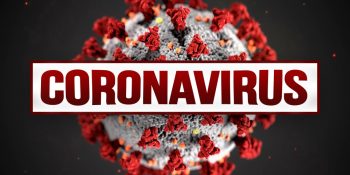DENVER (March 5): Today, Gov. Polis and state health officials announced Colorado’s first presumptive positive case of COVID-19, as well as a subsequent second case. Below, find the most recent information on both cases. Updates will also be made available as needed, or on a daily basis, on the Department of Public Health and Environment’s website.
Latest information on Colorado’s first case of COVID-19:
- Colorado has its first case of COVID-19. The case is considered a “presumptive positive” because testing was conducted at the state level. The case will be sent to the CDC for official confirmation.
- The state is acting on all “presumptive positive” cases as if they were confirmed because a quick response is essential to minimize the spread of the virus.
- The patient is an out-of-state visitor to Summit County, a male in his 30s.
- The patient traveled to Italy in mid-February. An individual who traveled with him on that trip is a known case of positive COVID-19 in another state. Upon returning from Italy, the patient spent time in his home state.
- He then traveled to Colorado on Feb. 29 via plane. He was asymptomatic when he traveled to Colorado. According to CDC, transmission from asymptomatic people is not thought to be the main way the virus spreads.
- The Governor’s Office has been in touch with Denver International Airport (DIA) and has shared the information that we have at this time.
- The person traveled to Summit County from DIA in a rental vehicle and met with friends. They stayed in a condo in Summit County.
- We know that he was there for outdoor recreation and that he skied at Keystone and Vail Mountain Resort.
- The Governor’s Office notified Vail Resorts late this afternoon which oversees both ski resorts the patient visited.
- On March 3, the man developed symptoms and went to St. Anthony’s Summit Medical Center in Frisco the following day.
- On March 4, in the afternoon, a specimen was taken to the lab for testing.
- Today, on March 5, the state lab received a presumptive positive result.
- For health care reasons, the patient had to be transported to lower altitudes. The patient was discharged and traveled in a private vehicle to Jefferson County wearing a mask.
- At this time, the patient is now recovering in isolation in Jefferson County.
- His close contacts in Colorado have received quarantine instructions, and a quarantine order is forthcoming.
- Public health practitioners are investigating and will attempt to notify anyone else who may have been exposed because of this case, if necessary.
Latest information on Colorado’s second case of COVID-19: We are gathering information on this case, alongside the local public health agency. Tri-County Health Department will provide greater details as appropriate and available. Tri-County Health Department is leading this case investigation and will send a press release shortly with the most up-to-date information. on the case. This case is also a “presumptive positive” because testing was conducted at the state level. CDC will confirm the test results.
- The case is an elderly female Douglas county resident.
- She returned to Colorado from international travel.
- She is currently isolated at her home per CDC guidelines.
The department continues to work closely with CDC and public health agencies across the state and is committed to protecting the health and safety of Coloradans. Health officials advise Coloradans to stay informed, take simple disease prevention measures, and prepare.
- Practice good hygiene. Thoroughly wash your hands with soap and water. In the absence of soap and water, use hand-sanitizer; use a tissue or your elbow or sleeve to cover coughs and sneezes
- Stay home if you’re sick; keep your children home if they are sick. Talk to your employer about working from home if necessary.
- We advise Coloradans to always be prepared for an emergency and have a plan for your family. Coloradans can visit the CDC’s website for more information on how to create a plan.
- Stay informed with reliable, up-to-date information. People who have general questions about coronavirus disease 2019, can call CO HELP at 303-389-1687 or 1-877-462-2911 or email , for answers in English and Spanish (Español), Mandarin (普通话), and more. Coloradans can also visit the CDC and CDPHE websites for more information on best practices.
The state will provide timely updates on any additional cases that test positive at the state lab.
SPREAD THE NEWS
COMMENT, Like, Follow & SHARE @I70Scout
CURRENT EDITION
WEATHER & TRAFFIC PUZZLES RECENT NEWS ADVERTISE WITH US

